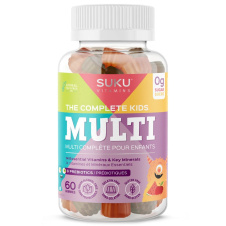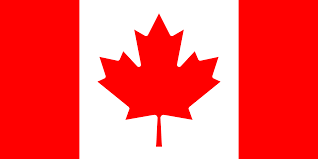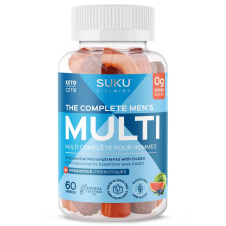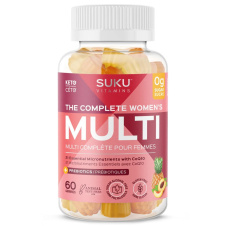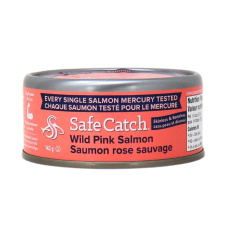Affichage navigation

12 Foods to Help You Survive Cold & Flu Season
We've all been there, with a runny nose and a box of tissues in our hand, walking around in our pajamas towards a warm bowl of soup. Why? We got sick! But, this cold & flu season will be different! We've got all the tools to avoid getting sick, check them out!
It's that time of year again where the air fills with germs from coughing and sneezing and the constant sound of sniffling. You guessed it; it's cold and flu season! In Canada, cold and flu season typically occurs in the fall and winter months--which is also back to school season. For many, it's also "return to the workplace" season. And, this quickly turns into “bring your virus to school or work” day. With the increase in contact with others, there is also an increase in bacteria and germ transmission, putting you at high risk of getting sick.
And, of course, you should get your flu shot to help lower your risk of getting sick. But there's also something else you could do to prevent getting sick, requiring no needles, kicking and screaming or any pain. What is it? Improve your diet! Many foods can help you strengthen your immune system and fight off the cold and flu virus. Adding these foods to your diet is the easiest way to avoid getting sick year-round. The best part is... they're tasty!
Check them out!
12 Foods to Help You Survive Cold and Flu Season:
Foods High in Vitamin C: Vitamin C is a natural antioxidant. Antioxidants help fight oxidative stress in your body, which can cause illness and disease. Vitamin C is known to increase your body's ability to fight infection and may even reduce the severity and duration of colds. Citrus fruits and vegetables commonly have high levels of Vitamin C. However, vitamin C can easily dissolve in water. So, specific cooking methods, like boiling, can reduce the amount of Vitamin C in food.
Foods high in vitamin C include:
- Broccoli: Broccoli is a neutral-tasting vegetable that can be prepared in many different forms: sauteed, riced or even turned into pasta noodles! There's an option available for even the pickiest of eaters!
- Red Pepper: Red pepper is a good source of vitamin C. It can be eaten raw, roasted, or even made into sauces.
- Oranges: Oranges are well known for their high vitamin C content. You can have oranges raw, mixed into desserts, or if you're an athlete, gym-goer or consistently on the run, there are drink mixes available.
- Tomatoes: These bright red fruits are very high in vitamin C. There are over 75000 types of tomatoes in the world for you to choose from! Tomatoes are commonly added to salads or made into a tomato sauce or pizza sauce.
Foods high in vitamin E - Similar to vitamin C, vitamin E is also an antioxidant. Vitamin E is like a lifeguard for your cells. It keeps your healthy cells from getting hurt (oxidated), and it helps injured cells to recover. The more healthy and robust cells you have, the less likely you are to get sick!
Foods high in vitamin E include:
- Vegetable oils: Vegetable oils, such as avocado oil, offer a large amount of vitamin E.
- Nuts & Seeds: Nuts, such as almonds, cashews, and seeds are a great source of vitamin E. You can eat them raw, in trail mix or in butter form.
- Leafy Green Vegetables: Toss spinach, kale and some herbs in a salad for a vitamin E loaded salad. Top with some extra virgin olive oil for extra flavour and extra vitamin E.
- Wheat Germ: Sprinkle some wheat germ on your yogurt, ice cream or even use it as breadcrumbs for an extra dose of vitamin E.
- Tomatoes: Tomatoes can do it all! Besides being high in vitamin C, they're also high in vitamin E.
Foods high in vitamin D - Vitamin D or the sunshine vitamin is vital during cold and flu season. Vitamin D helps fight off germs and may even lower your risk of respiratory infections and respiratory-related diseases. You can naturally get vitamin D from the sun, but sunshine is limited in Canada during the fall and winter. Many Canadians are deficient in vitamin D, which puts them at risk of disease. Canadians could benefit from eating more foods rich in vitamin D.
Good food sources of vitamin D are:
- Oily Fish: Oily fish like salmon, sardines, or mackerel are high sources of vitamin D. Canada's food guide recommends eating fish twice a week. If you are unable to eat fish or despise the taste, consider a supplement or multivitamin.
- Fortified foods: Since many Canadians are deficient in vitamin D, many foods like cereals and milk are now fortified with vitamin D.
Foods high in zinc - Although commonly forgotten, zinc is crucial for a healthy immune system. Zinc helps to create your army of germ-fighting immune cells. It is especially vital for respiratory-related illnesses, like the common cold. Meeting your recommended zinc intake while sick may also help reduce the severity and duration of your cold.
Foods that are commonly high in zinc are:
- Hemp Seeds: Hemp seeds contain loads of zinc! Add them to your smoothies, yogurts, or salads!
- Lentils: Lentils are great in soups, seafood, salads or even in your favourite pasta.
Garlic and Garlic Foods: Garlic can help fight inflammation and viruses. It triggers the body to produce more disease-fighting white blood cells. Although you could eat a straight garlic clove, there are other options available.
Foods with Garlic:
- Mayo: Add to sandwiches or use it as a sauce-base.
- Marinara Sauce: Just another reason to eat more pasta.
- Garlic Avocado Oil: Great on salads or to add a little seasoning.
- Garlic Alfredo Sauce: A tasty and healthy twist on classic alfredo sauce.
- Roasted Garlic Sauce: Use it for pasta sauce, tomato soups or pizza sauce.
- Garlic Powder: A little sprinkle of garlic on chicken, potatoes, or your favourite veggies can give your immune system that extra boost!
Should I Just Take a Multivitamin Instead?
Although helpful and convenient, you should only consider a multivitamin after trying to improve your diet or if you have dietary restrictions, or you're a very picky eater. Being deficient in any vitamin or mineral can put you at risk of getting sick. Men, women, children and toddlers will have different nutrient needs and will require a multivitamin explicitly made for them.
What Happens if I Get the Cold or Flu?
There are many treatments available for the cold or flu. One of the most effective medicines is elderberry syrups. Elderberry has been traditionally used in herbal medicine to help fight colds, sore throat, cough and fever, soothe inflammation, help open airways, and relieve congestion of sinuses and lungs.
If you have an annoying sore throat, consider using a propolis throat relief spray. Propolis, produced by honeybees, has antiviral and immune-boosting effects.
Lastly, there's always the good old chicken noodle soup, hydration, rest and relaxation. If symptoms persist, visit your doctor.
Being sick is uncomfortable and takes precious time away from you. Developing a healthy diet and lifestyle that helps maintain a healthy immune system is critical for preventing sickness year-round. There are many ways to incorporate these foods into your diet, if you need inspiration check out our recipes! But sometimes, no matter what you do, you manage to catch a bug. When this happens, it's important to recover as soon as possible. Use our tips to avoid getting sick this cold and flu season and get better sooner! You’ll never need a sick-day again!








